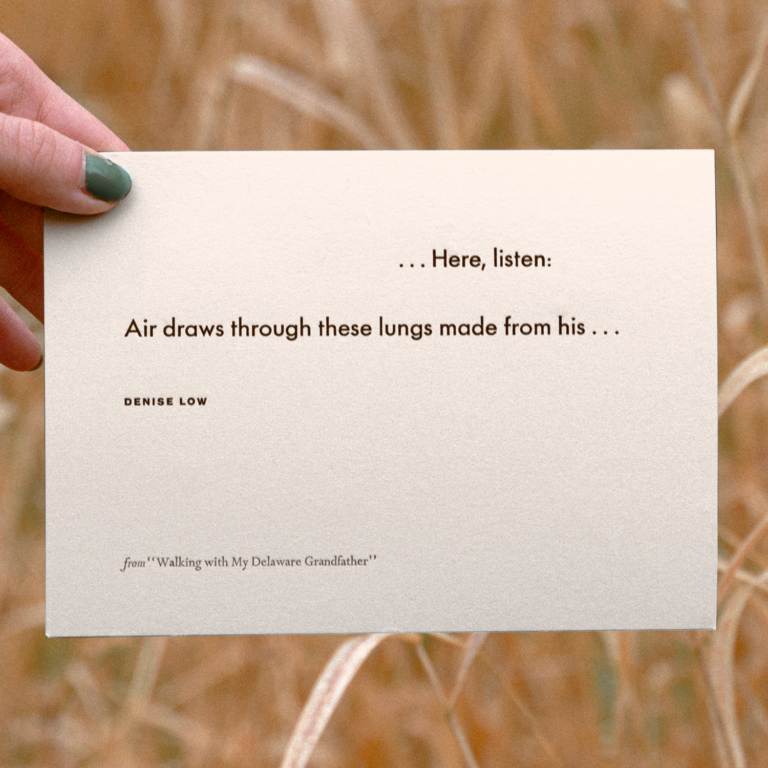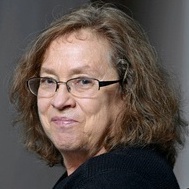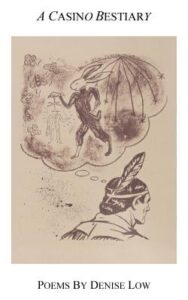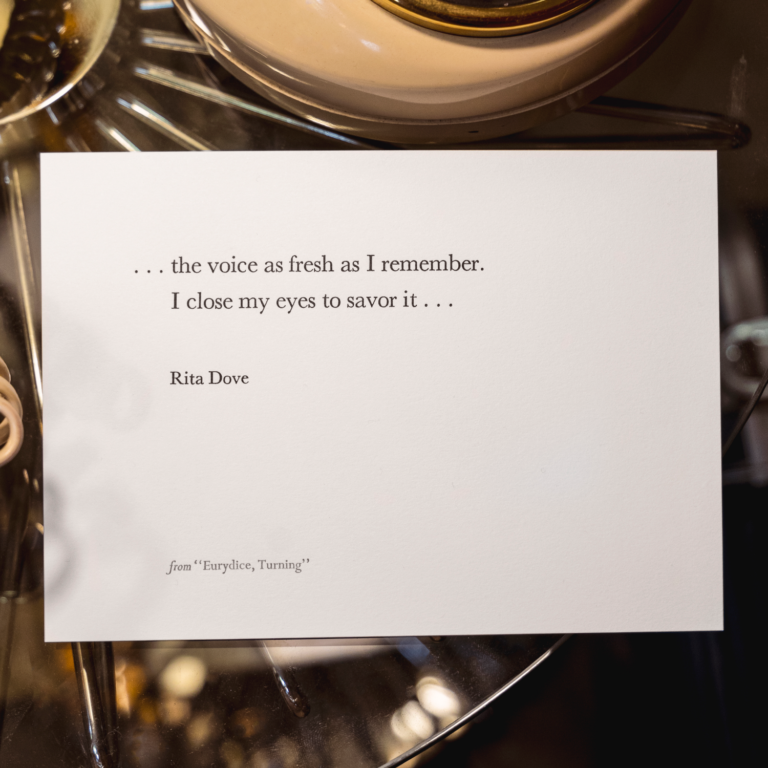Denise Low
Walking with My Delaware Grandfather
We carry memory in our body: memories of our own selves, but memories of our forebears, too — talking with them as we walk, learning from them as they inquire.
We’re pleased to offer Denise Low’s poem, and invite you to sign up here for the latest from Poetry Unbound.

Letterpress print by Myrna Keliher. Photography by Lucero Torres. © All Rights Reserved.
Guest

Denise Low is the former Kansas Poet Laureate, and an award-winning author of 30 books of prose and poetry. She blogs, reviews, and co-publishes Mammoth Publications, which specializes in Indigenous American authors. Recent poetry books are A Casino Bestiary and Mélange Block, poetry based on geologic structures and mixed-blood experiences.
Transcript
Transcription by Heather Wang
Pádraig Ó Tuama: My name is Pádraig Ó Tuama, and I’ve been living in New York City for the last six months, on a writing residency at Columbia. I’m soon about to go home to Ireland. But all of these last six months, I’ve been curious, as I’ve been living in Manhattan — this Lenape word meaning “place of many hills” — I’ve been curious about who was here. Who are the people who were the original curators and inhabitants of this land, the Lenape people, also known as the Lenni-Lenape or Delaware people, whose homeland stretched from Massachusetts down through New York and New Jersey, into Delaware. These European cities’ names, York and Jersey — each of these names is an enforced layer of war and occupation and displacement put upon a location. And I’ve been searching for Lenape or Delaware poets.
[music: “Praise the Rain” by Gautam Srikishan]
“Walking with My Delaware Grandfather” by Denise Low:
“Walking home I feel a presence following
and realize he is always there
“that Native man with coal-black-hair who is
my grandfather. In my first memories
“he is present, mostly wordless,
resident in the house where I was born.
“My mother shows him the cleft in my chin
identical to his. I am swaddled
“and blinking in the kitchen light. So
we are introduced. We never part.
“Sometimes I forget he lodges in my house still
the bone-house where my heart beats.
“I carry his mother’s framework
a sturdy structure. I learn his birthright.
“I hear his mother’s teachings through
what my mother said of her:
“She kept a pot of stew on the stove
all day for anyone to eat.
“She never went to church but said
you could be a good person anyway.
“She fed hoboes during the ‘30s,
her back porch a regular stop-over.
“Every person has rights no matter
what color. Be respectful.
“This son of hers, my grandfather,
still walks the streets with me.
“Some twist of blood and heat still spark
across the time bridge. Here, listen:
“Air draws through these lungs made from his.
His blood still pulses through this hand.”
[music: “Ashed to Air” by Gautam Srikishan]
One of the reasons I love this poem by Denise Low is its title, “Walking with My Delaware Grandfather.” It’s a present-tense poem. It evokes the past, but it shows that the past isn’t the past — that the past is very present. And Denise Low achieves this through powerful verbs in the title — “Walking with” — but that’s echoed throughout the whole poem. So there’s verbs like “I feel”; “he is always”; “he is present”; “I am swaddled”; “We never part”; “he lodges in my house still”; “Here, listen”; “His blood still pulses.”
And each of those is a way of honoring the past, but not as a way of calling it history — as a way of saying: Even if you don’t think it’s the present, it is: here. And she ends in her body — her pulse, the cleft of her chin, the touch of her skin, her heart, her blood — as a way of saying: This is present, and he is present — especially to those people who would deny or not know or be ignorant of the fact of his and all Indigenous peoples’ presence.
[music: “Rainday” by Blue Dot Sessions]
This poem focuses so much on who the grandfather is. He’s a “Native man with coal-black-hair,” he’s the father of her mother, and he’s the son of his mother. And he follows Denise Low. He’s protective of her, but he’s also curious. And he manages to be both silent and communicative, and that he and her meet in walking. While he’s shown in the kitchen, it’s often that he seems to be present in the outdoors — a way of being quiet while being with somebody.
And this poem picks up on that in its form. It’s a poem arranged in two-line stanzas — couplets. And the first line of each of those couplets starts off justified to the left, but the second line is indented a little bit. It’s almost like the second line is following a little bit behind, a ghost of the first line. And in this way the structure of the poem, too, is echoing the companionship that Denise Low is saying: Always there; maybe just a little bit over, maybe not quite visible, but present, alongside.
[music: “True Shape” by Blue Dot Sessions]
The generational links in this poem are beautiful, and they’re seamless: “His blood,” “this hand” — there’s only one letter of a difference between “His” and “this” in that final line. So even the words in the final line of the line are made from each other. This poem offers an entirely different way of saying: We are people together, cross-generational relationships of absolute need, and honoring where it is bearing witness to each other, and honoring each other with profound love and loyalty, and defiance, too, in the face of annihilation and erasure. And this poem, through the time bridge of the body, is honoring this so deeply.
The time bridge is a way of feeling connected, a way of knowing your story and your land. But it is also a way of remembering. And “remembering” has a few meanings. “Remembering” can mean “to recall,” but it can also mean “to put together again.” So the time bridge and the bone-house of Denise Low’s body is a way of remembering — putting back together — a person who was with her always, whose history was one of being erased over the last number of centuries. And she is re-membering a sense of dignity, a sense of place, a sense of belonging on the land.
[music: “First Grief, First Air” by Gautam Srikishan]
This poem has a deep knowledge about what it means for your own body to bear witness to your past, to your generations past. The grandfather in this poem is one of the four generations being evoked, because we hear of Denise, we hear of her mother, of her grandfather, and that man’s mother, also. And he’s walking, and he doesn’t seem unsettled, but he seems to be looking for a home to be found in the body and life and experiences of his granddaughter. And an invitation from this is to consider, what are the ways within my past generations are looking for a home, maybe a resolution, maybe an opportunity for change, maybe an opportunity for defiance, maybe an opportunity to say: “I’m still here”?
[music: “Memoriam” by Gautam Srikishan]
“Walking with My Delaware Grandfather” by Denise Low:
“Walking home I feel a presence following
and realize he is always there
“that Native man with coal-black-hair who is
my grandfather. In my first memories
“he is present, mostly wordless,
resident in the house where I was born.
“My mother shows him the cleft in my chin
identical to his. I am swaddled
“and blinking in the kitchen light. So
we are introduced. We never part.
“Sometimes I forget he lodges in my house still
the bone-house where my heart beats.
“I carry his mother’s framework
a sturdy structure. I learn his birthright.
“I hear his mother’s teachings through
what my mother said of her:
“She kept a pot of stew on the stove
all day for anyone to eat.
“She never went to church but said
you could be a good person anyway.
“She fed hoboes during the ‘30s,
her back porch a regular stop-over.
“Every person has rights no matter
what color. Be respectful.
“This son of hers, my grandfather,
still walks the streets with me.
“Some twist of blood and heat still spark
across the time bridge. Here, listen:
“Air draws through these lungs made from his.
His blood still pulses through this hand.”
[music: “Praise the Rain” by Gautam Srikishan]
Chris Heagle: Thank you to Denise Low, who gave us permission to use her poem “Walking with My Delaware Grandfather,” from the book Mélange Block, published by Red Mountain Press. Read it on our website, at onbeing.org.
[music: “Praise the Rain” by Gautam Srikishan]
Poetry Unbound is: Gautam Srikishan, Erin Colasacco, Eddie Gonzalez, Lilian Vo, Lucas Johnson, and me, Chris Heagle.
Our music is composed and provided by Gautam Srikishan and Blue Dot Sessions.
This podcast is produced by On Being Studios, which is located on Dakota land. You may enjoy our other podcasts: On Being with Krista Tippett, Becoming Wise, and This Movie Changed Me. Find those wherever you’d like to listen, or visit us at onbeing.org to find out more.
Books & Music
Recommended Reading
The On Being Project is an affiliate partner of Bookshop.org and Amazon.com. Any earnings we receive through these affiliate partnerships go into directly supporting The On Being Project.










